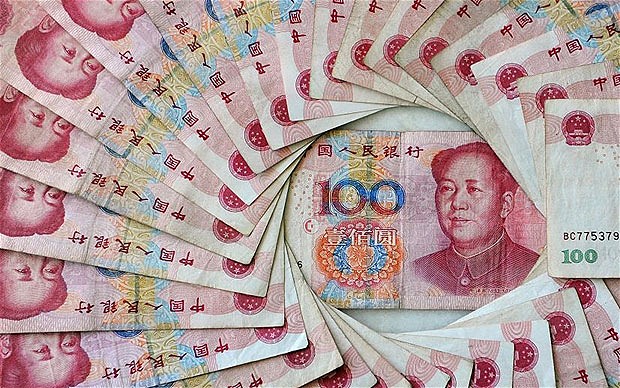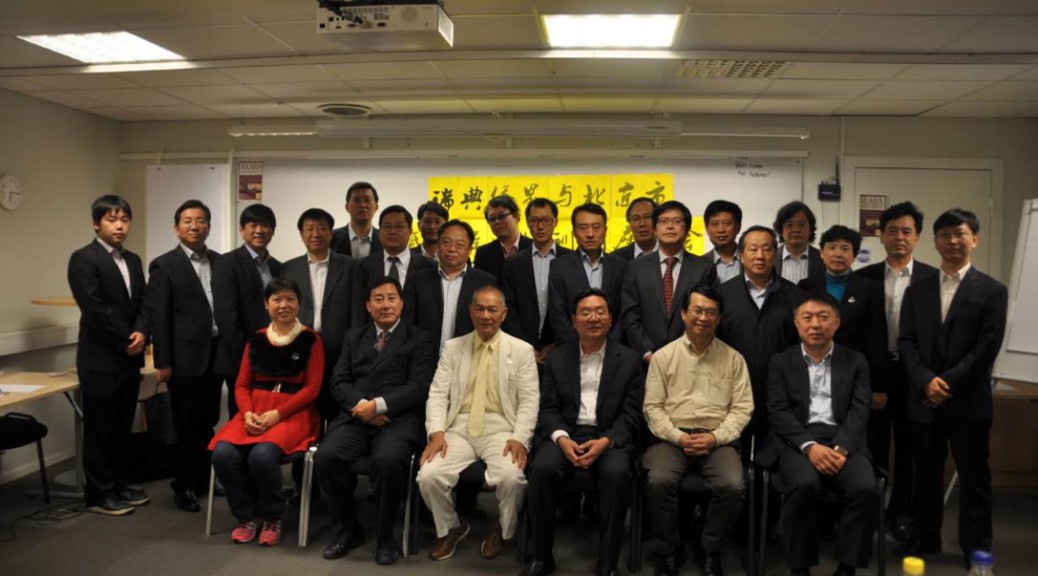BEIJING, Aug. 26 (Xinhua) — The Chinese government’s easing of monetary policies is much more than a response to the recent stock market rout, as it aims mainly to lower borrowing costs and shore up economic growth.
On Tuesday, the People’s Bank of China (PBOC), the central bank, announced cuts in the reserve requirement ratio (RRR) and a lowering of interest rates, following a four-day losing streak on the stock market that chopped the benchmark Shanghai index by more than 20 percent.
On Sept. 6, the RRR for financial institutions will be cut by 50 basis points. The RRR for financial leasing companies and companies providing car loans will be lowered by 300 basis points.
From Wednesday, interest rates for one-year lending and deposits will be cut by 25 basis points to 4.6 percent and 1.75 percent respectively.
The measures helped arrest the freefall on the stock market, with the Shanghai index seeing its decline narrow to 1.27 percent on Wednesday, down from a 7.63-percent plunge on Tuesday and 8.49 percent on Monday.
European stock markets mostly surged on Tuesday after turmoil in the global markets on Monday. Major indices in the United States also witnessed narrowing declines on Tuesday compared with previous trading days.
UBS chief economist Wang Tao said the move signaled the Chinese government’s determination to safeguard financial stability and helped shore up sentiment in financial markets.
But that was only a small part of the government’s intentions, as China still faces huge downward pressure on economic growth.
China is lowering financial costs and maintaining reasonable liquidity to ensure steady growth, said Ma Jun, chief economist at the central bank’s research bureau.
“It was necessary to cut RRR and interest rates again to stabilize market expectation both at home and abroad, in a showcase of China’s role as a responsible large nation,” Ma said.
This is the fourth time the PBOC has cut both RRR and interest rates since the beginning of this year.
RATE CUTS TO LOWER COSTS
The rate cut is seen as the latest effort by the central bank to lower corporate funding costs and shore up the economy, after recent weaker-than-expected economic indicators disappointed global investors.
A main gauge of factory activity, the Caixin flash China general manufacturing PMI slipped to 47.1 in August, the lowest reading since March 2009, while the year-on-year growth in industrial output slowed to 6 percent in July, also down from a month earlier.
Zhu Haibin, chief economist for J.P. Morgan China, said the PBOC’s rate cut reassured the market amid growing concerns about the economy.
Wang also recognized the necessity of the move.
“Although financing costs have retreated somewhat, real interest rates have stayed high amid ongoing deflationary pressures, especially the contraction in the PPI,” she said.
The producer price index (PPI), a measure of costs for goods at the factory gate, fell 5.4 percent year on year in July, the 41st straight month of decline.
Wang expects the PBOC to cut the benchmark rate once more late this year to further reduce real financing costs.
China’s economy grew in the first half of the year by 7 percent, its lowest level since the global financial crisis. But analysts said the growth rate is likely to pick up based on support policies during the rest of the year.
RRR CUT TO STABILIZE ECONOMY
The RRR cut came amid strong market expectations of easing measures by the central bank to lessen the liquidity strain caused by shrinking funds outstanding for foreign exchange and the depreciation of Chinese currency the yuan.
Analysts believe the cut will effectively replenish the market and relieve cash-starved financial institutions.
Wang estimated around 700 billion yuan (nearly 109 billion U.S. dollars) of liquidity will be released immediately.
Giving out a similar projection, Lian Ping, economist with the Bank of Communications, wrote in a research note that the cut in deposit reserve ratio will prompt banks to expand credit and enhance their capacity to support the real economy.
The effects of the cut were instant and evident. On Wednesday, the benchmark overnight Shanghai Interbank Offered Rate (Shibor), which measures the cost at which Chinese banks lend to one other, retreated to 1.786 percent from Tuesday’s 1.879 percent.
“The RRR cut, therefore, is necessary to keep base money supply stable, and to ensure a steady growth of money and credit in the coming months,” Wang said.
The money market has been suffering from lack of liquidity since the end of July despite repeated cash injections by the PBOC through less powerful operations including reverse repurchase agreements and short-term lending facilities.
Economists predict more easing measures from the central bank in the latter half of the year. Enditem



















